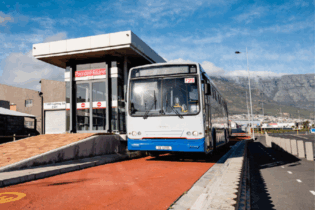The Constitutional Court of South Africa has not yet made judgement on whether it will overturn the injunction preventing the implementation of e-tolling, as requested by the South African National Roads Agency Limited (Sanral).
In opposition to Sanral is the Opposition to Urban Tolling Alliance (OUTA), which has said that the tolls would be “an inefficient, costly and unnecessary additional burden on road users, who already pay through a number of taxes for the benefit of road use”. However, the National Treasury has said that if the e-tolls are not implemented, there would be increased negative effects on the investment in road infrastructure and public transport. Treasury has also indicated that there are insufficient finances available to implement large projects such as the Gauteng Freeway Improvement Project (GFIP), and the best way to accumulate the finances would be the ‘user pays’ principle.Finance Minister Pravin Gordhan said that “it is clearly unhelpful, if we are to make progress in these challenges, that an important source of revenue for the road system has been delayed”. He also stressed that both the government’s and Sanral’s GFIP investment “has been made not out of general revenue, but through debt which has to be repaid. Cabinet has reiterated its commitment to the e-toll system as an efficient and appropriate mechanism of partial cost recovery from road-users.”
Government made a contribution of R5.75 billion to the GFIP, which will be depleted by the first quarter of 2013 should e-tolls not be collected. If it wishes to avoid the early depletion of the funds, it higher taxes on road infrastructure need to be put into place. This was all disclosed in court papers by Gordhan. Transport Minister Ben Martin has said that a way has to be found to fund the GFIP and that “there’s a need for all stakeholders to come to an agreement. At the end of the day we can’t just print money, a budget has to be found somewhere.” However, he did not rule out other methods of funding the GFIP, such as using the fuel levy.





